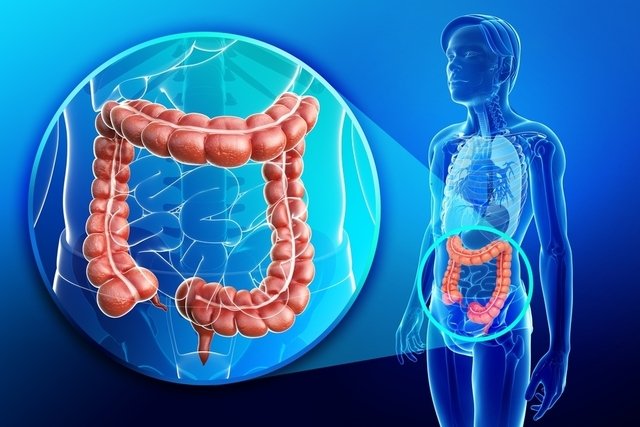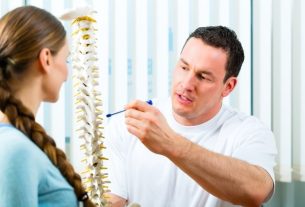Ascariasis is a disease caused by the worm Ascaris lumbricoidespopularly known as roundworm, which can cause abdominal discomfort, difficulty defecating or diarrhea and vomiting.
Despite being found most frequently in the intestine, Ascaris lumbricoides It can also develop in other parts of the body, such as the heart, lungs, gallbladder and liver, especially if there is no diagnosis or if treatment is not carried out correctly.
Ascariasis is curable and is easily treated with the use of antiparasitic medications prescribed by a general practitioner, mainly Albendazole and Mebendazole. At the same time, it is important to improve hygiene habits to avoid contamination, and it is recommended to wash your hands thoroughly after using the bathroom, wash food thoroughly before preparing it and avoid drinking water that is potentially infected.

Ascariasis symptoms
The symptoms of ascariasis are related to the number of parasites in the body, the main ones being:
- Abdominal pain or discomfort;
- Nausea and vomiting;
- Diarrhea or constipation;
- Presence of blood in the feces, in some cases;
- Excessive tiredness;
- Loss of appetite;
- Presence of worms in feces.
Furthermore, as the parasite can spread to other parts of the body, other specific symptoms may also appear in each affected area, such as coughing and a feeling of shortness of breath, when it develops in the lungs, or vomiting with worms, when it appears in the liver. or in the gallbladder, for example.
In some cases, the parasite may be present even if there are no symptoms, as it is necessary for them to develop and be present in large numbers for the first signs to begin. For this reason, many doctors recommend taking an antiparasitic once a year, to eliminate possible parasites that may be growing, even if there are no symptoms.
See the main symptoms of ascariasis and other worm infections in the following video:
How to confirm the diagnosis
In most cases, ascariasis can only be diagnosed through the evaluation of symptoms by a general practitioner or infectious disease specialist, however it is important that a stool test is carried out so that the diagnosis can be confirmed and treatment can begin. Understand how the stool test is performed.
When there are symptoms other than intestinal ones, the doctor may request an X-ray to check whether the parasite is developing in other parts of the body, in addition to knowing the severity of the infection.
Taking care of your health has never been easier!
How transmission happens
The main form of transmission of ascariasis is through the ingestion of parasite eggs that may be present in contaminated food and water, which may be due to the use of feces as fertilizer, for example.
After ingestion of mature eggs, the infective larva present inside the egg is released into the intestine, perforates it and moves to the lungs, where it undergoes the maturation process. After developing in the lungs, the larvae move into the trachea and can be eliminated or swallowed. When they are swallowed, they undergo a process of differentiation into male and female, reproduce and eggs are released again by the female. Ascaris lumbricoides.
Prevention of ascariasis
To avoid infection by Ascaris lumbricoides It is important to adopt prevention measures, such as washing your hands thoroughly after using the bathroom, washing food before preparing it, avoiding direct contact with feces and drinking clean water, for example.
Furthermore, it is important that the population in endemic regions is periodically treated with medicines that promote the elimination of parasite eggs in feces, in addition to being important to treat human feces that can be used as fertilizers.
How the treatment is carried out
When the parasite is only found in the intestine, treatment can be easily carried out with the use of antiparasitic medicines for 1 to 3 days, or according to the doctor’s instructions. It is normally recommended to use Albendazole in a single dose or Mebendazole twice a day for 3 days.
However, when there are a large number of roundworms to the point of intestinal obstruction or when the parasite is present in other parts of the body, it may be necessary to perform surgery to remove the parasite and correct the lesions it may have caused.
Bibliography
- BARRER, Michael R. Medical Microbiology: A guide to microbial infections – pathogenesis, immunity, laboratory investigation and control. 19 ed. Elsevier, 2018. 618-619.
- ZEIBIG, Elizabeth A. Clinical Parasitology. 2.ed. United States of America: Elsevier, 2013. 197-201.

Sign up for our newsletter and stay up to date with exclusive news
that can transform your routine!
Warning: Undefined array key "title" in /home/storelat/public_html/wp-content/plugins/link-whisper-premium/templates/frontend/related-posts.php on line 12
Warning: Undefined array key "title_tag" in /home/storelat/public_html/wp-content/plugins/link-whisper-premium/templates/frontend/related-posts.php on line 13




